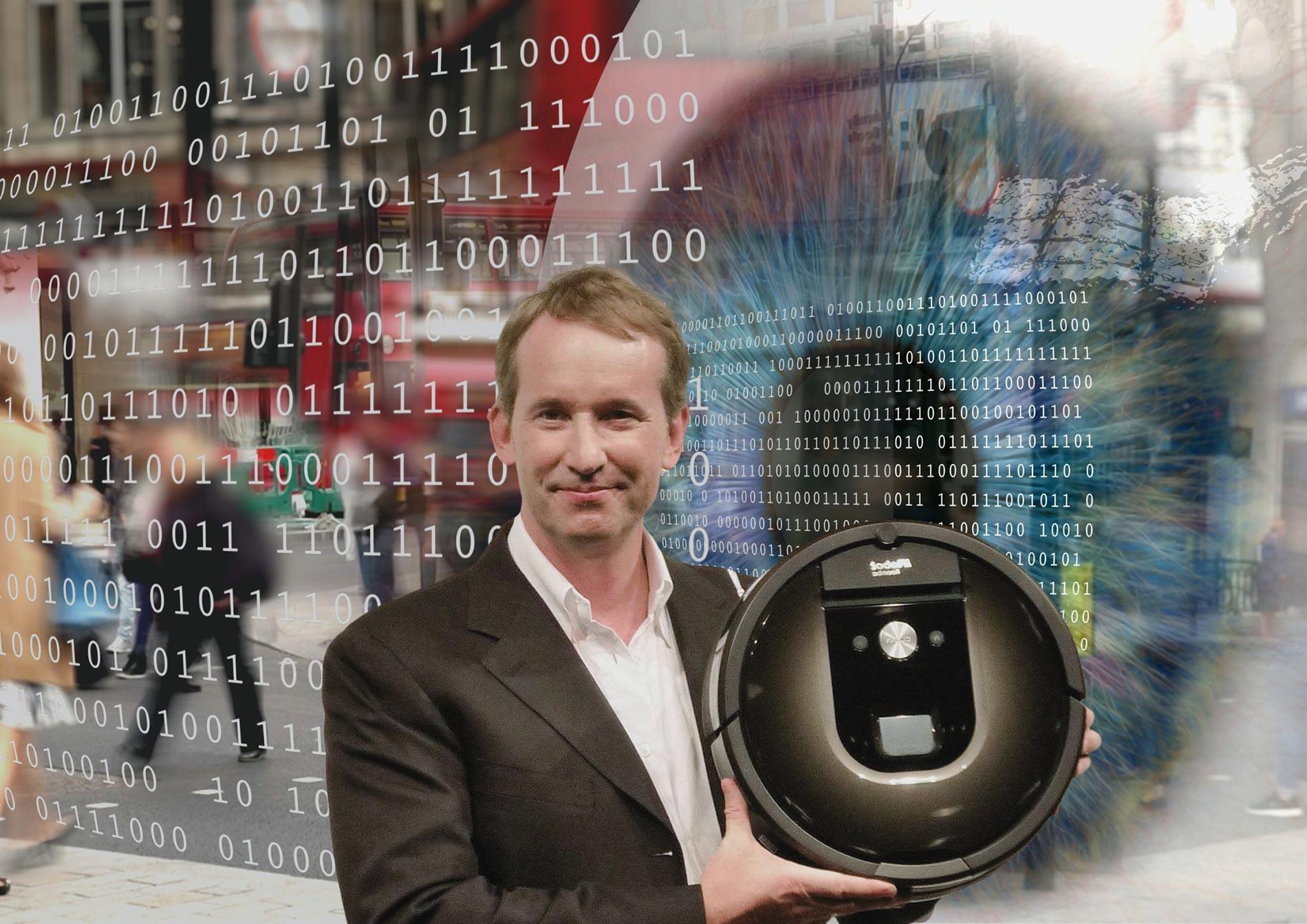A little robot that takes care of vacuuming the floor while you are at work might sound ideal to many, yet the price to pay for this might be a complete invasion of your privacy, reminiscent of the novel 1984. Amazon’s recent acquisition of the company that produces the Roomba has experts concerned with the level of surveillance in people’s homes.
Gustav Fauskanger Pedersen, 14 September 2022
George Orwell’s Nineteen Eighty-Four is a bleak dystopian cautionary tale of the dangers of mass surveillance and totalitarianism, in which people live under constant surveillance and scrutiny. With Amazon’s recent USD 1.7 billion acquisition of iRobot, the producer of the Roomba robot vacuum, many are concerned that we are rapidly heading towards a surveillance society that is eerily Orwellian.
“Imagine a robot vacuum that not only remembers a home’s floor plan and cleans specific rooms by name – but also automatically empties itself. … The Roomba i7+ brings a new level of intelligence and automation to robotic vacuum cleaners with the ability to learn, map and adapt to a home’s floor plan.”
The quote above is from a press release from iRobot in 2018, announcing the Roomba i7+. In the press release, iRobot also highlighted that the Roomba i7+ works with Alexa and Google Assistant, allowing for the possibility of sending it to a specific room or area for cleaning by voice command.
In response to hearing the news that Amazon was buying iRobot, Robert Weissman, president of Public Citizen, advised that federal regulation should stop the purchase, stating that the last thing the world needs is Amazon “vacuuming up even more of our personal information.” Weissman argues that with the purchase, Amazon will gain more details about our lives, giving them an unfair market advantage.
Similarly, Sarah Miller, executive director of the American Economic Liberties Project, stated after the news of the acquisition broke that it is obvious that Amazon seeks to dominate the Smart Home market, and she also argued that Congress should step in to stop what she calls an acquisition spree of big tech companies.
The acquisition of iRobot was called the most dangerous and threatening acquisition in Amazon’s history by Ron Knox, a senior researcher at the Institute for Local Self-Reliance. He stated that it gave Amazon a new way into people’s homes and lives.
It is easy to understand where this concern is coming from, especially considering the capabilities that the Roomba already had for mapping out one’s home. With further integration into the Amazon family of “smart home” products, it might seem that Amazon will be able to monitor close to all aspects of our lives.
It is no secret that Amazon gathers large amounts of data about consumers, mainly in order to target ads and offers and sell the consumer more stuff. Although the way that Amazon expands and acts in and of itself might be worthy of criticism, especially in terms of attempted monopolization of markets and unfair advantages over competitors, there is a far more nefarious issue in play considering all the data Amazon collects about its users.
Over the last few years, Amazon has violated data protection and privacy laws, including a series of data breaches. In 2021, the EU handed Amazon a fine of EUR 746 million for violating the EU’s General Data Protection Regulation (GDPR), as Amazon allegedly mishandled personal data in violation of GDPR legal standards.
Amazon does not disclose all details about its data collection practices, nor is it clear if the collection, use and transfer of personal data is authorized. If the data is not stored in anonymous datasets this could violate the GDPR. Amazon does consistently disclose with whom this data is shared and for what reason. This puts each individual’s personal data and privacy at risk. The risk of hacking or data leaks is also a big concern.
In addition to involuntarily sharing information, Amazon also readily shares data collected from consumers’ smart home and home security devices with the US government, potentially allowing law enforcement officers to gain the ability to fully monitor the activities of a suspect. Amazon has also given the police data from Ring doorbells on several occasions without user consent, which has worried privacy advocates.
Amazon has become one of the world’s largest and most effective surveillance companies with eyes and ears in millions of households worldwide. Together with Amazon’s other products and services, Amazon’s most recent acquisition of iRobot enables third parties to gain access to all personal details about your life, home and business. Amazon’s ears and eyes know all about what you search for online, what you do and say offline, who is ringing your doorbell, who calls and texts you, how you use your tablet and what you watch on TV. The Roomba vacuum will be spying on you 24/7 and passing this information on to Amazon. Amazon has essentially become our ‘big brother’.
Of course, there is no guarantee that your personal information will ever fall into the wrong hands, but realistically there is no guarantee to the contrary either. Even if under certain circumstances – such as criminal investigations or national security interests – intrusive surveillance is sometimes necessary, it must be done within the legal and constitutional framework and not behind the backs of users and consumers. Continuous criticism and scrutiny of our present “surveillance society” is necessary, lest we, much like Winston, the protagonist of 1984, in our apathy give up our freedom and privacy, and end up loving big brother.
Picture: iRobot unveils top model of Roomba vacuum cleaner robot iRobot Corp. Chief Executive Officer Colin Angle unveils in Tokyo on 29 September 2015, the Roomba 980, the top model of its Roomba vacuum cleaner robot. The new model, priced at 135,000 yen, hit the market on 10 October 2015. © IMAGO / Kyodo News
Other Articles Which Might Interest You
Will ChatGPT Make You Low-Skilled?







